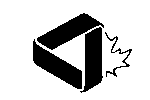|
|

|

|

|
|
Mathematical Education / Enseignement des mathématiques
(Sponsored by the Department of Mathematics, UBC /
Parrainée par le Département de mathématiques, UCB)
(George Bluman and Klaus Hoechsmann, Organizers)
- ED BARBEAU, University of Toronto, Toronto, Ontario M5S 3G3
Teaching mathematics-a matter of acculturation
-
When we travel, it helps to have knowledge of the country we visit.
But if we want the experience to touch us, simple knowledge is not
enough; we need some feeling for the culture, which speaks to the
coherence of the experience. So it is with the Country of mathematics.
Liping Ma's book tells me that Chinese teachers, with their Profound
Understanding of Fundamental Mathematics, have been able to enter into
this culture in a way that their American counterparts have not. What
are the hallmarks of this mathematical culture?
- LIPING MA, Stanford
To be announced
-
- KANWAL NEEL, Steveston Secondary School, Richmond, British Columbia V7E 2E3
Numeracy initiatives in British Columbia
-
Almost everyone knows what math is but what is numeracy? Defined by the
British Columbia Association of Mathematics Teachers (BCAMT) as ``the
combination of mathematical knowledge, problem solving and
communication skills required by all persons to function successfully
within our technological world.'' Numeracy is part of literacy. A
student's level of numeracy is a significant component of their level
of literacy.
- CYNTHIA NICOL, Faculty of Education, University of British Columbia,
British Columbia
Mathematics by inquiry: a certificate programme for
mathematics teachers
-
The National Council of Teachers of Mathematics (NCTM) has issued a set
of principles and standards for K-12 mathematics based on the premise
that students develop mathematical competence by being actively and
frequently engaged in processes such as problem solving, exploring,
conjecturing, and reasoning. Similarly the MAA's Committee on the
Mathematical Preparation of Teachers recommended that future teachers
be given ``opportunities in their collegiate courses to do
mathematics: explore, analyze, construct models, collect and represent
data, present arguments, solve problems.'' Mathematics teachers are
therefore being asked to teach in ways that are most likely different
from the ways they once learned mathematics as students. In order for
teachers to engage in the kind of mathematical pedagogy envisioned by
organizations like NCTM and MAA, teachers need opportunities to
practice the ``doing'' of mathematics and to see the familiar middle
school and high school curriculum as a place for mathematical inquiry.
A response to this issue is the development of the UBC Certificate
Programme for Mathematics Teachers (first offered in January 1999).
The certificate programme is designed for practicing teachers who seek
professional development in their own understanding of mathematics and
the opportunity to learn mathematics by inquiry.
This presentation will highlight the nature and purpose of the UBC
Certificate Programme for Mathematics Teachers and the content and
structure of the courses (MATH 336 and MATH 337). The presentation
will also raise issues and challenges of offering such a program (
e.g. attracting and maintaining enrollment, strategies and purposes of
course evaluation, and connections of mathematics coursework to
mathematics teaching practice).
- SERGEI NOVOCELSKII, Department of Mathematics, University of British Columbia,
Vancouver, British Columbia V6T 1Z2
Math anxiety in prospective teachers
-
For the past 3 years, I have taught a course for prospective elementary
school teachers. I find it extremely difficult to meet the criteria of
the Mathematics Department and at the same time help these students
overcome their obstacles to learning. The anxiety of some of them is
severe enough to lead to emotional outbursts in and out of class. In an
effort to create a positive and enjoyable learning environment, I have
developed a variety of strategies which center on interactivity and
group projects. I try to make the transition from simple example to
abstract theory smooth and almost imperceptible. The results are
overwhelmingly good: for many, mathematics became considerably less
obscure, and for some, the discovery of their own abilities was a
wonderful ``awakening'', as they wrote in their evaluations. However,
it is a strenuous uphill struggle, and I wonder what can be done to
make it less so.
- CHRISTIAN SIEBENEICHER, Universität Bielefeld, D-33501 Bielefeld, Germany
Euler's ``Art of Reckoning''
-
The Art of Reckoning has always been part of human culture, but to
my knowledge there have been only two eminent mathematicians who
wrote a book on the subject: Leonardo of Pisa in 1202 and Leonhard
Euler in 1738 (for schools in St. Petersburg). While Fibonacci assumes
some prior familiarity with it, Euler develops it from its beginning in
a timelessly clear fashion. In his preface he expresses his conviction
that learning is without value as long as it does not lead to
understanding. I think that even today his book can serve as a guide
for anyone who wishes to teach arithmetic to children. In my talk I
will pay particular attention to the kind of problems used in Liping
Ma's survey.
- RAVI VAKIL, Department of Mathematics, MIT, Cambridge, Massachusetts 02139,
USA
A mathematician talks to high school students
-
We mathematicians often come into contact with young students who are
keen and willing to be inspired, and yet as a profession we do a poor
job communicating our excitement with them (despite finding our own
work incredibly compelling, and despite having once been young
ourselves). I'll describe many of the programmes set up for high
school students, both here and in other countries, and relate some of
the good ideas that people have tried. As in any mathematical talk, I
will also mention some of the open problems in the area: What
precisely should we be telling students seeking enrichment? Should we
be giving them depth or breadth? Inspiration or knowledge? Specific
tools or fuzzy ``big pictures''? Are competitions good? Are puzzles
bad?
(The presenter has worked extensively with high school students for
many years, through the Olympiad programme and various math camps, and
in high schools, both in Canada and the U.S.)
Sponsored by the CMS Student Committee.
|
|




